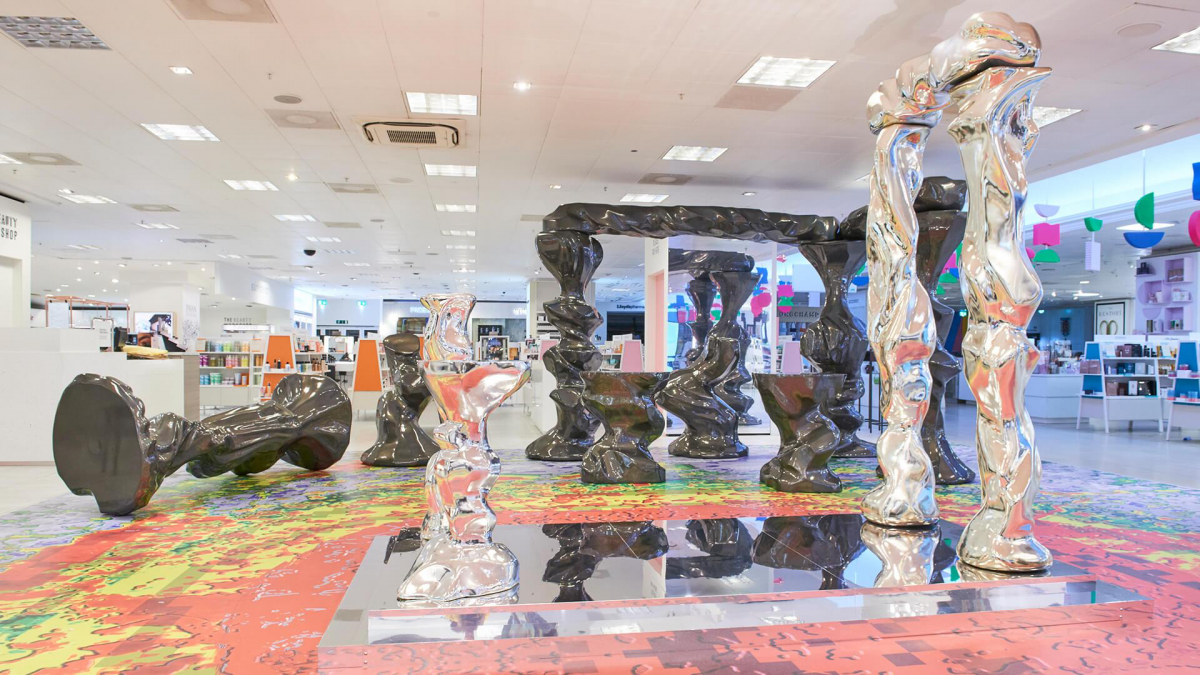LONDON – Long gone may be the days of testers at Sephora, faces of makeup done at department store counters and sales of unused lipsticks and blushes on secondhand retail platforms. Touch is an intrinsic aspect of beauty, so what are consumers and professionals to do when it’s restricted? The €460-billion global market – along with the retail sector at large – is set to face major challenges as a result of the COVID-19 crisis. McKinsey & Company reveals that consumers plan to spend less on beauty in the short term – which was resilient even through the 2008 financial crisis – and the consultancy estimates that revenues could fall by 20 to 30 per cent this year. That projected number climbs to 35 per cent in the US if we see a resurgence of the pandemic in 2020.
In-person shopping resulted in 85 per cent of beauty purchases pre-pandemic
The physical store is central to the beauty community. Despite cosmetic and skincare retailers having established digital presences, in-person shopping resulted in 85 per cent of beauty purchases pre-pandemic – close to 60 per cent amongst Gen Z and millennial consumers. Dazed Media’s health- and beauty-focused platform Dazed Beauty is one particular entity that’s in a prime position to set the pace for the community’s impending shift to digital, which McKinseypredicts will quicken due to COVID-19. Even still, before London went into lockdown, the virtual platform had found value in launching its first-ever pop-up at Selfridges, with a surreal experiential space designed by Thomas Petherick (an interview with whom features in our Nov/Dec 2019 issue Frame 131). It was meant to host live workshops, tutorials and treatments with artists including Sylvie MacMillan, Sunday Riley and Drag Race UK’s The Vivienne – when Selfridges closed its doors in response to COVID-19 on 18 March, the programme was adapted for IGTV. ‘We first started speaking to Selfridges about Dazed Beauty Space in December 2019,’ says Dazed Studio client services director Simone Sebastian. ‘The team was excited by the idea of bringing together AI, beauty filters and other “URL” experiences to an “IRL” environment that celebrated progressive ideas of beauty and sustainability – all of which aligned perfectly with Selfridges’ wider plans for its Beauty Hall.’


Yet players like Dazed Beauty, retailers and artists have been hosting activations on digital channels for some time. So, why do beauty buyers have a lingering attachment to spaces like Selfridges’ Beauty Hall? ‘A lot of this is due to customer service and product trials – you just can’t beat colour-matching foundation on your actual skin,’ says Sebastian. ‘But we also can’t ignore the emotional impact of in-store experiences and live events. Post-lockdown, the return to in-store shopping is likely to be slow, but we believe that “IRL” experiences will still be a key part of beauty retail.’ Dazed Beauty assistant editor Dominic Cadogan also credits the shared aspect of beauty consumption: ‘While there are thriving online groups, physical stores have always been an endless source of connections and togetherness. In fact, many of us beauty fanatics have incredibly fond memories formed with our friends, family and loved ones, experimenting with different products in stores – even when it doesn’t quite go to plan.’
Post-lockdown, the return to in-store shopping is likely to be slow, but “IRL” experiences will still be a key part of beauty retail
‘The idea of a beauty counter and what it usually delivers is quite clear, but at Dazed Beauty we’re always looking to interpret things via our own lens,’ explains Cadogan. ‘We wanted to hone in on the feeling people get when leaving a beauty counter. From our point of view, this revolved around themes of identity, inclusivity and the future. We posed a few questions in the process of coming up with the pop-up: What would be the purpose of a beauty counter in the future? How could we move the conversations on from the more transactional retail experiences of today? And how could we make people view themselves differently – more positively – when leaving Dazed Beauty Space? With the digital realm crossing over in more and more industries these days, it was a no-brainer to explore how that might change the experience.’


Bringing the planned interactive programme for Selfridges’ Dazed Beauty Space to the digital realm did come with a few challenges – namely slow internet speed. But the pay-off was increased visibility and inclusion: where reservation spaces had been very limited for activations meant to be held in the department store, audiences on Instagram had no bounds. Eventually the team hopes that the now-shuttered Dazed Beauty Space can live on elsewhere. ‘Our intention is for it to pop up at physical spaces and events post-Selfridges,’ says Sebastian, ‘but we will be reassessing this over the coming months based on guidelines for events and experiences.’
What would be the purpose of a beauty counter in the future?
Indeed, this is a period of reassessment for beauty on the whole. ‘It’s clear we’ll see a rapid acceleration of pre-COVID-19 trends, such as direct-to-consumer e-commerce, shoppable content on social media and AI product trials on brand websites,’ Sebastian reflects. ‘Moving forward, the beauty industry will need to prioritize digital channels to capture and convert the attention of customers and invest in artificial intelligence for trial as concerns about safety and hygiene will massively affect in-store consultations.’

